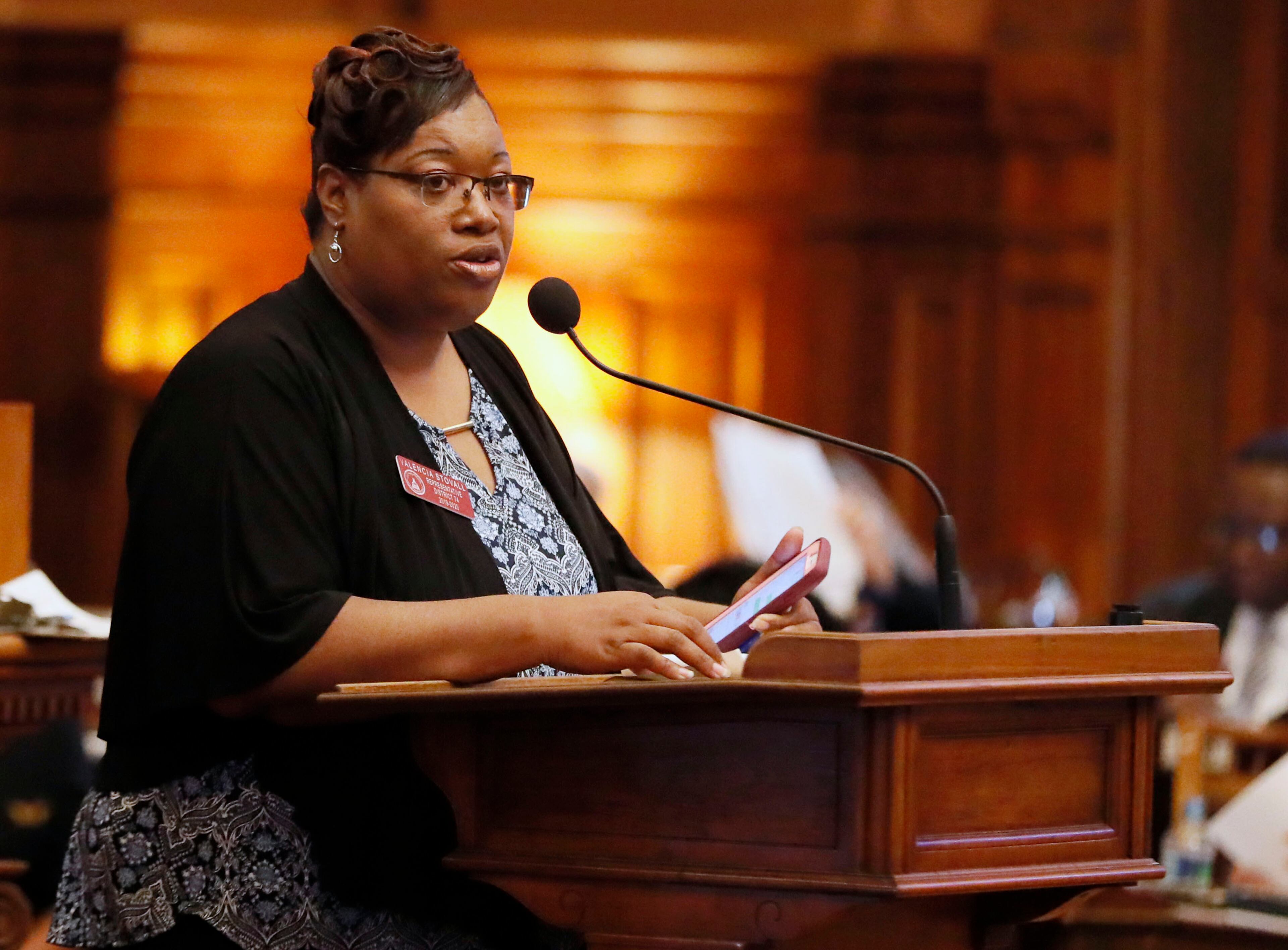Three Georgia lawmakers go down to defeat; June runoffs set in some districts

Three Georgia House incumbents were defeated during Tuesday’s primary election votes, and one more will likely have to defend his seat in a runoff next month.
While one of the races was designed so that it was clear one incumbent wouldn’t be returning next year — Democratic state Reps. Saira Draper and Becky Evans were drawn into the same district last year by the General Assembly’s Republican majority — two other House members also lost their primary races.
Draper, an Atlanta Democrat in her first term, defeated Evans. No Republican candidates signed up to run for the DeKalb County seat, meaning Draper will head back to the Statehouse in January for another term.
Draper and Evans were two of eight House members drawn into the same district as a party colleague last year by the Republican majority, a process called “pairing.” The DeKalb County district — which was heavily made up of Draper’s old seat — was the only race where neither incumbent chose to retire from office.

State Rep. Teri Anulewicz of Smyrna was among the Democrats paired with a colleague from the same party. State Rep. Doug Stoner, also a Smyrna Democrat, opted not to seek reelection.
Still, Anulewicz lost her primary election to Gabriel Sanchez, an activist who was endorsed by the Democratic Socialists of America’s Atlanta chapter. Sanchez will face Republican challenger Diane E. Jackson in November in the Democratic-leaning district.
In the other two “paired” districts, one of the incumbents in each district chose not to run.Elsewhere, in Henry County, Republican state Rep. Lauren Daniel lost a rematch against Noelle Kahaian. Kahaian, who owns an accounting and consulting firm with her husband, lost to Daniel two years ago by less than 400 votes. Kahaian will face Democrat Mishael White in November.
State Rep. Steven Sainz, who represents most of Camden County in southeast Georgia, finished just shy of avoiding a June 18 runoff election. Candidates in Georgia must win a majority of votes to be elected to office, and Sainz won 49.68% against his two Republican primary competitors. Barring a recount that increases his totals, Sainz will face a runoff against Glenn Cook, a retired Delta Air Lines manager and former military officer who drew about 27% of the vote.
There were few surprises in the election that is often decided in the primary when lawmakers in all 236 seats are up for reelection every two years.
Republicans are all but certain to retain power in the Legislature, where many incumbents drew token opposition from the other side of the aisle or no challenger at all.
The retirement of three Democratic state senators triggered a deluge of candidates interested in taking over their Atlanta-area seats. All three primaries are heading to runoffs in Democratic-heavy districts.
In District 34, which spans Clayton and Fayette counties, Valencia Stovall, a former state representative, led with about 46% of the vote. She will face Kenya Wicks, a former military officer.
RaShaun Kemp, who previously ran for a Statehouse position but lost in a runoff election, led in the race for District 38 with about 24% of the vote. Following closely behind was Ralph Long III, who served in the Statehouse from 2009 to 2013, with 23% of the vote.

The race for the DeKalb County seat held by retiring Senate Minority Leader Gloria Butler will see a choice between former Democratic state Rep. Randal Mangham and Iris Hamilton, a Democrat who works in health insurance.
The new district maps were drawn in response to a federal judge’s ruling that the state’s political boundaries established in 2021 during the redistricting process illegally weakened Black voting power. The maps were designed to protect most incumbents and left only a handful of swing districts up for grabs.
About half of Georgia’s 180 House races drew candidates from both parties, while 33 of Georgia’s 56 Senate seats will be uncontested in November.
More than 90 lawmakers — 23 senators and 69 representatives — effectively won reelection in March, the deadline for candidates to qualify for elections, because they didn’t have an opponent from either party.






